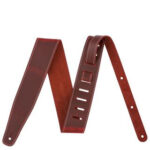For bass players, staying in tune is non-negotiable. Whether you’re laying down a solid groove in the studio or holding down the low end on stage, your bass needs to be pitch-perfect. That’s where the Bass Guitar Tuner Pedal becomes an indispensable tool. More than just a convenient accessory, a dedicated tuner pedal is a game-changer, especially for live performers.
The beauty of a bass guitar tuner pedal lies in its simplicity and efficiency. With a quick stomp of your foot, you can mute your signal, tune up silently, and be ready to rock without any awkward pauses or cable swapping. These pedals are built to withstand the rigors of the road, designed with robust housings and clear, bright LED displays that are easy to read even on dimly lit stages. Choosing the right bass guitar tuner pedal can significantly improve your performance and ensure you always sound your best.
When it comes to selecting a bass guitar tuner pedal, the options can seem vast. However, understanding the key features and benefits will help you narrow down your choices. Let’s explore what makes a great tuner pedal and highlight some top contenders that stand out in the market.
Why a Bass Guitar Tuner Pedal is Essential
While there are various ways to tune your bass, a pedal tuner offers distinct advantages, particularly for performing musicians:
- Silent Tuning On Stage: This is the primary benefit. A tuner pedal mutes your output signal when engaged, allowing you to tune silently between songs without your audience hearing any unwanted tuning noises. This maintains a professional and seamless performance.
- Speed and Efficiency: Tuning with a pedal is incredibly fast. You don’t need to unplug, find a separate tuner, or fiddle with headstock tuners in front of an audience. A quick stomp, tune, and stomp again gets you back in the mix in seconds.
- Accuracy: High-quality tuner pedals offer precise and accurate tuning. Many chromatic tuners can detect a wide range of notes and frequencies, ensuring your bass is perfectly in tune across the entire fretboard.
- Durability: Pedal tuners are built to be stomped on – repeatedly. Their rugged construction ensures they can withstand the demands of live performances and transport without failing.
- Visibility: Bright LED displays are a standard feature, making tuner pedals easy to read on dark stages, ensuring you can tune accurately in any environment.
- Pedalboard Integration: Designed to fit seamlessly into your pedalboard setup, tuner pedals are compact and easily powered alongside your other effects pedals.
Key Features to Look for in a Bass Tuner Pedal
When you’re in the market for a bass guitar tuner pedal, consider these important features:
- Chromatic Tuning: Essential for bassists, chromatic tuners can detect all twelve notes of the chromatic scale. This is crucial for alternate tunings or basses with extended ranges.
- Display Type and Visibility: Look for a bright, clear LED display that’s easy to read in various lighting conditions. Some tuners offer different display modes (strobe, meter, etc.) to suit personal preferences.
Alt text: Korg Pitchblack chromatic bass guitar tuner pedal showcasing its vibrant color variations, ideal for pedalboards.
- Tuning Modes: Some pedals offer different tuning modes, including standard chromatic, guitar, and bass modes. While chromatic mode is generally preferred for its versatility, dedicated bass modes can sometimes offer optimized sensitivity for lower frequencies.
- True Bypass vs. Buffered Bypass: True bypass ensures the tuner pedal does not affect your signal when disengaged, maintaining the purity of your bass tone. Buffered bypass can be beneficial in long pedal chains to prevent signal loss but may slightly alter your tone even when bypassed. Consider your setup and tonal preferences when deciding.
- Power Requirements: Most tuner pedals are powered by standard 9V DC power supplies, making them easy to integrate with your pedalboard power setup.
- Accuracy and Speed: A tuner’s accuracy is paramount. Look for tuners with high accuracy ratings (often measured in cents). Speed of response is also important for quick and efficient tuning.
- Strobe Mode: Many advanced tuner pedals offer a strobe tuning mode, known for its exceptional accuracy. Strobe tuners visually represent pitch deviations with a rotating display, allowing for extremely precise tuning.
Top Bass Guitar Tuner Pedal Recommendations
While numerous excellent bass guitar tuner pedals are available, two models consistently receive high praise from bassists worldwide:
1. Korg Pitchblack Chromatic Tuner Pedal
The Korg Pitchblack series is renowned for its reliability, accuracy, and user-friendly design. The Pitchblack is a staple on pedalboards globally, and for good reason. It boasts:
- Bright and Versatile Display: Features a large, easily readable LED meter with multiple display modes (Meter, Full Strobe, Half Strobe, Mirror) to suit different preferences and tuning styles.
- Chromatic Tuning Accuracy: Provides precise chromatic tuning, essential for bass guitars and various tuning needs.
- Rugged Construction: Built with a durable aluminum die-cast body, the Pitchblack is designed to withstand the rigors of stage use.
- True Bypass: Ensures no signal coloration when the tuner is bypassed, preserving your bass tone.
- Variety of Colors: Available in various colors, allowing you to personalize your pedalboard.
The Korg Pitchblack is a fantastic all-around bass guitar tuner pedal that delivers performance, durability, and ease of use, making it a top choice for bassists of all levels.
2. Boss TU-3 Chromatic Tuner Pedal
The Boss TU-3 is arguably the industry-standard bass guitar tuner pedal, found on countless professional pedalboards. Its reputation for reliability and robust performance is unmatched. Key features include:
- Industry-Leading Reliability: Boss pedals are famous for their tank-like construction, and the TU-3 is no exception. It’s built to last a lifetime of gigs and rehearsals.
Alt text: The iconic Boss TU-3 chromatic tuner pedal, known for its ruggedness and bright LED display, a standard for bass and guitar players.
- Bright 21-Segment LED Meter: Offers a clear and highly visible 21-segment LED meter with a High-Brightness mode for outdoor stages or bright environments.
- Chromatic and Guitar/Bass Modes: Provides both chromatic tuning and dedicated Guitar/Bass modes for optimized tuning.
- Accu-Pitch Sign Function: Visually indicates when tuning is complete, providing extra confirmation.
- Buffered Bypass: Features buffered bypass, which can be advantageous in long signal chains to prevent signal degradation (though some purists prefer true bypass).
The Boss TU-3 is a workhorse bass guitar tuner pedal trusted by professionals worldwide for its unwavering reliability, accuracy, and ease of use. It’s a pedal you can depend on night after night.
Integrating a Bass Tuner Pedal into Your Rig
Incorporating a bass guitar tuner pedal into your setup is straightforward:
- Placement in the Signal Chain: Ideally, place your tuner pedal first in your signal chain. This ensures a clean, unaltered signal for accurate tuning before any effects are applied.
- Connection: Connect your bass to the input of the tuner pedal and the output of the tuner pedal to the input of your next pedal or amplifier.
- Power: Power the pedal using a 9V DC power supply, either individually or as part of a pedalboard power supply.
- Tuning Process: Engage the tuner pedal (muting your signal), tune your bass strings until the pedal indicates they are in tune, and disengage the pedal to resume playing.
Conclusion: Stay in Tune, Sound Your Best
A bass guitar tuner pedal is more than just an accessory; it’s an essential tool for any serious bassist, particularly those who perform live. It offers silent, accurate, and fast tuning, ensuring you always sound your best, whether on stage or in the studio. Investing in a quality tuner pedal like the Korg Pitchblack or Boss TU-3 is an investment in your performance and your sound. Don’t let tuning be an afterthought – make it seamless and professional with a dedicated bass guitar tuner pedal.


